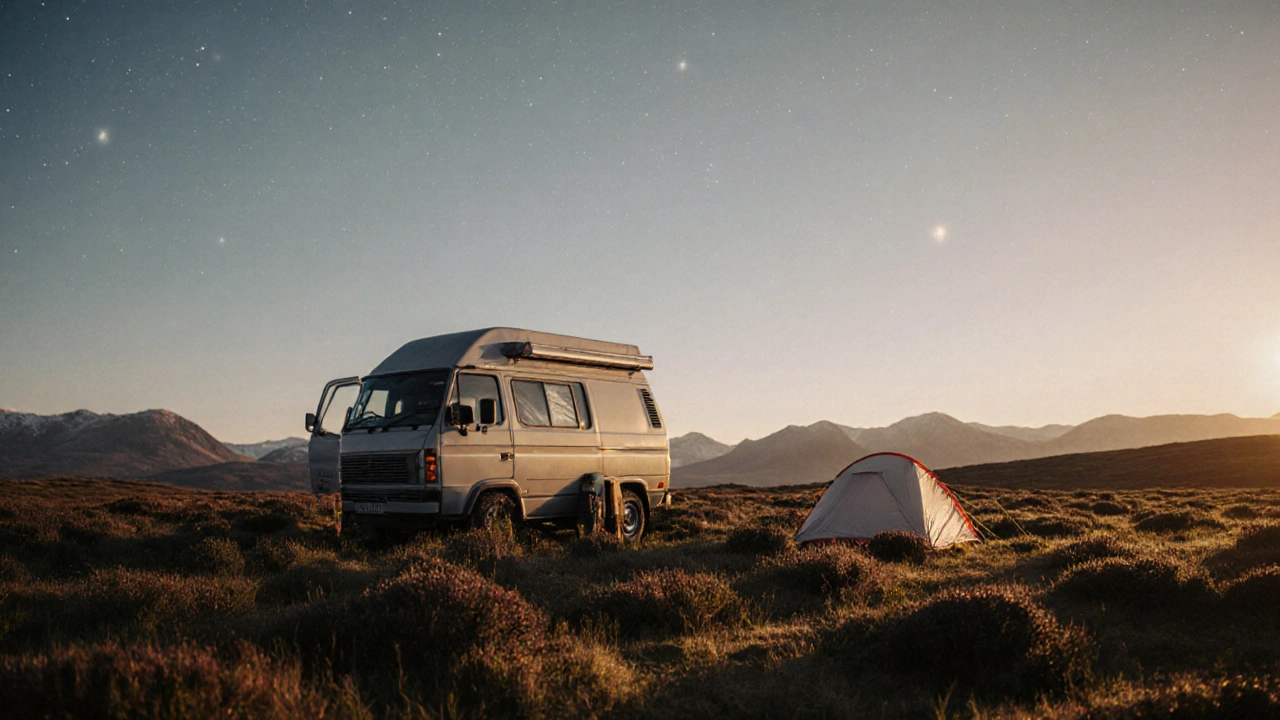Boondocking vs Camping: What’s the Real Difference?
When people talk about boondocking, free, off-grid camping without hookups at public lands or remote spots. Also known as dry camping, it’s about self-reliance—no electricity, no water, no dump station. You’re completely on your own, relying on your rig’s batteries, solar panels, and stored supplies. That’s not the same as camping, a broader term that includes any overnight stay outdoors, whether at a developed site with toilets and power or a quiet forest clearing. Boondocking is a type of camping, but not all camping is boondocking. The key difference? Control. Camping at a site means following rules, paying fees, and using shared facilities. Boondocking means you pick the spot, set your own schedule, and deal with the consequences—good or bad.
Think of it this way: wild camping, sleeping in nature without formal sites, often in areas where it’s legally gray or restricted. In the UK, wild camping is mostly illegal unless you have landowner permission. In the US, it’s common on public lands like BLM areas or national forests—that’s where boondocking thrives. But even in the US, you can’t just pull over anywhere. Some places require permits, others limit how long you can stay, and some ban generators entirely. That’s why knowing the rules matters more than the gear. A portable power station helps, but it won’t save you if you’re parked in a no-stay zone.
Then there’s the gear. Boondocking demands more. You need enough battery power to run your fridge, a water tank that lasts days, and a way to handle waste without a dump station. Most campers at a site just plug in, turn on the tap, and call it a day. Boondockers? They track their power usage like a budget. They ration water. They pack out trash. They learn how to use a WAG bag or dig a cat hole because there’s no toilet nearby. It’s not harder—it’s just different. And if you’ve ever slept under stars with no lights but your headlamp, you know why people do it.
Some folks think boondocking is just camping without fees. It’s not. It’s a mindset. It’s about freedom, silence, and the quiet satisfaction of making your rig work for you. You won’t find Wi-Fi, laundry, or a camp store. But you’ll find real stars, real peace, and real independence. The posts below cover everything from how to power your rig off-grid, to where you can legally boondock in Florida or Michigan, to what gear actually makes a difference when you’re miles from anywhere. Whether you’re new to this or just tired of crowded sites, you’ll find real advice here—not fluff, not hype. Just what works.
